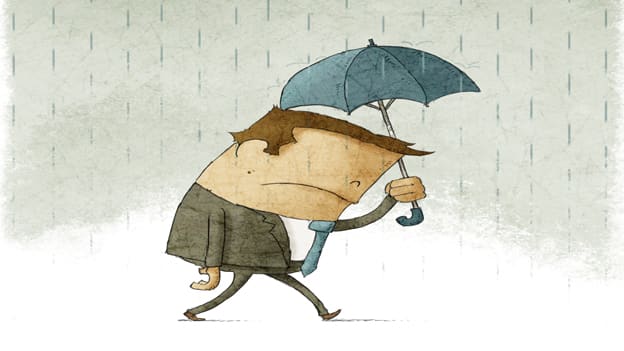Embracing Vulnerability: Weakness or Opportunity?

Recently, Uber was in the news for a change in leadership. However, what caught the attention of the media was not just who was taking over from Travis Kalanick but a vulnerable admission from the incoming CEO, Dara Khosrowshahi, the CEO of Expedia at the time. While addressing his Expedia staff in his memo, he wrote “I have to tell you that I’m scared. But the times of greatest learning for me have been when I’ve been through big changes, or taken on new roles – you have to move out of your comfort zone and develop muscles that you didn’t know you had.” Khosrowshahi was courageously articulating excitement and apprehension which most would experience in the face of a change or a challenge, but few would express openly. This is perhaps because we live in a world where perfection and strength are idolized; we work in organizations which unintentionally or otherwise cultivate stereotypes – “leaders should be strong and compelling”, “the boss is always right” or that “performance is about perfection” and “to err is no longer human but fatal”. Therefore, the tendency is to sweep vulnerabilities under the carpet.
Organizations could experience various kinds of vulnerabilities, viz., economic, physical, security or social. While a lot of measures may be in place to address such vulnerabilities, how do we ensure that we build workplaces which cushion and coach employees with regard to their professional and in some cases personal inadequacies? Moreover, just how safe is it for one to reveal one’s anxieties and vulnerabilities? Going by conventional wisdom, most would say it’s a bad idea. Expressing vulnerability as a measure of courage, therefore, may seem counterintuitive. One of the reasons for this is that for most people, credibility hinges on perfection. Brian Goldman, a Canadian ER physician and author echoes this in his Ted Talk, where he speaks of the resistance that he has observed among the medical fraternity to openly discuss their mistakes. Many workplaces routinely recognize and reward excellence whereas revealing one’s lapses in judgment or performance is considered sacrilegious. No wonder the author and scholar Brené Brown mentions that “we tend to numb vulnerability in order to deal with it”.
The denial of vulnerability, however, has repercussions for the organization. It creates an environment where employees do not openly share their concerns and stories for fear of ridicule, which in turn breeds insecurity and secrecy. It inhibits experimentation and exploration of new skills. The workplace festers with egotism. In fact, the willingness to reveal vulnerability could lead to an absence of trust, which is one of the dysfunctions of a team according to author Patrick Lencioni who mentions this in his book The Five Dysfunctions of a Team.
So how then do we change this paradigm about vulnerability being inappropriate at our workplaces?
Embrace Ignorance and Ambiguity
It is perfectly acceptable to not know or understand it at all and to be able to say so without fear of judgment. Organizations should encourage employees to openly and freely articulate their discomfort with the unknown and unpreparedness. Ignorance and ambiguity can make one feel vulnerable but more importantly, it also brings a big business advantage — it can trigger creativity at the workplace. Admission of ignorance could lead to newer ways of solving the same problem.
Encourage an organizational culture of openness
In his book, Work Rules, Lazlo Bock, Chief of People Practices at Google, talks about how failure is rewarded at his organization and therefore how it is absolutely okay to talk about what did not go right. Admitting failure can unearth vulnerabilities which lead to self-awareness. Self-awareness is key to transformation. We need organizational cultures to give more credit to vulnerability because it helps others come out in the open too. It takes courage and spirit to accept and work on vulnerabilities. And that is definitely worthy of respect.
Build leaders who are comfortable with being vulnerable
That’s right! A leader who has the courage to accept his insecurities and failings can deal better with his own emotional fragility and that of the others and yet lead with power and conviction. Within workplaces, the formal practice of having junior employees reverse mentoring senior executives and leaders on certain skills and areas could instill acceptance and comfort in leaders to face and repair chinks in their armors. A caveat is in order though. Leaders need to be cautious and selective about the vulnerabilities they reveal. This is because the objective of such admissions is to build trust, openness and come across as approachable and human. Done without discernment, such revelations could lead to erosion of credibility and trust.
Craft forums for sharing
Many organizations run coaching and counseling forums for employees to help them come to terms with fallibility and stress on the job and otherwise. These centers facilitate a deeper understanding of one’s vulnerabilities and see value in them as drivers of personal effectiveness.
The shift in our paradigm regarding vulnerability may not come so easily. It needs time, deliberate practice and trust. Additionally, it needs acknowledgment of the fact that everyone has feet of clay. And that’s absolutely okay as long as one accepts it and works towards improvement. After all, just as there is beauty in ashes, there is courage and hope invulnerability too.
(The views expressed in this article are author’s own and her employer does not subscribe to the substance or veracity of the views expressed in the article.)












